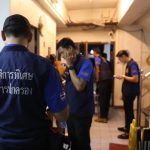Thailand’s Department of Disease Control reports no cases of bird flu in humans, but advises caution for travelers returning from areas affected by the H5N2 outbreak. Authorities urge these individuals to self-monitor for any respiratory symptoms for up to 14 days after arrival, emphasizing prompt medical consultation if symptoms arise.
Dr. Thongchai Keeratihattayakorn, head of disease control, affirmed that Thailand has remained free of human bird flu cases since 2006. Despite this, collaborative efforts among agencies like the Department of National Parks, Wildlife and Plant Conservation and the Department of Livestock continue to monitor animal outbreaks closely.
Preparedness measures are in place should an outbreak occur, with both the Department of Medical Sciences and the Department of Livestock equipped with laboratory capabilities to detect the H5N2 virus strain.
Recently, the World Health Organization (WHO) confirmed the first fatality from Avian Influenza A (H5N2) in April, involving a 59-year-old man from Mexico who passed away due to respiratory distress, diarrhea, vomiting, and flu symptoms. While the man had underlying health conditions, including chronic kidney disease, diabetes, and hypertension, investigations linked his illness to a local bird flu outbreak reported earlier.
Despite this case, WHO has assessed the risk to the general public from the H5N2 virus as low.




